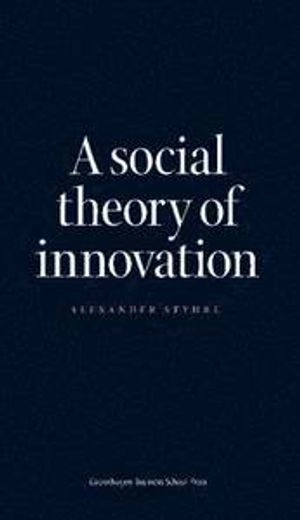The contemporary economy is primarily understood through the rationalist and formalist lenses of economic theory and its accompanying (mainstream) theories of organization and management. In this corpus of work, the economy is commonly portrayed as emerging on the basis of the calculated and instrumental use of heterogeneous resources. Innovation, the capacity to produce new goods and services, being of key importance in a competitive capitalist economic regime, is a joint, collaborative process embedded in social action, i.e., through forms of agency. In contrast to individualist, calculative, and utilitarian images of economic agency, sociologists, historians, anthropologists, and others have demonstrated that economic agency is determined in many cases by social and cultural conditions that extend beyond the narrow sphere of instrumental economic behavior.
Läs mer
A social theory of innovation makes a connection between innovation, economic agency and three complementary perspectives, i.e. those of playfulness, reciprocity, and squandering (the conspicuous and symbolic waste of excess resources), in terms of being three principles that underlie innovative and creative work. Rather than postulating the homo oeconomicus model of economic agency, prescribed by neoclassical economic theory, as the only possible and legitimate image of economic agency, alternative models exist which in various ways contribute to our understanding of how and why innovation is produced in contemporary society.
A social theory of innovation draws on a diverse corpus of literature from management studies, economics, economic sociology, and the humanities to provide a less confined and narrow image of innovation and economic agency. This book is intended for undergraduate, graduate and post-graduate business school curricula in both economic sociology and other educational programs addressing the organization of the economy and society at large.
Om författarna
Alexander Styhre, PhD, is Chair of organization theory and management at the School of Business, Economics and Law at the University of Gothenburg. Styhre has published widely in the field of organization theory and management studies. His most recent books include Visual Culture in Organizations (Routledge, 2010), Organizations and the Bioeconomy (Routledge, 2012), and Assembling Health Care Organizations (co-authored with Kajsa Lindberg and Lars Walter, Palgrave Macmillan, 2012).
Åtkomstkoder och digitalt tilläggsmaterial garanteras inte med begagnade böcker





















